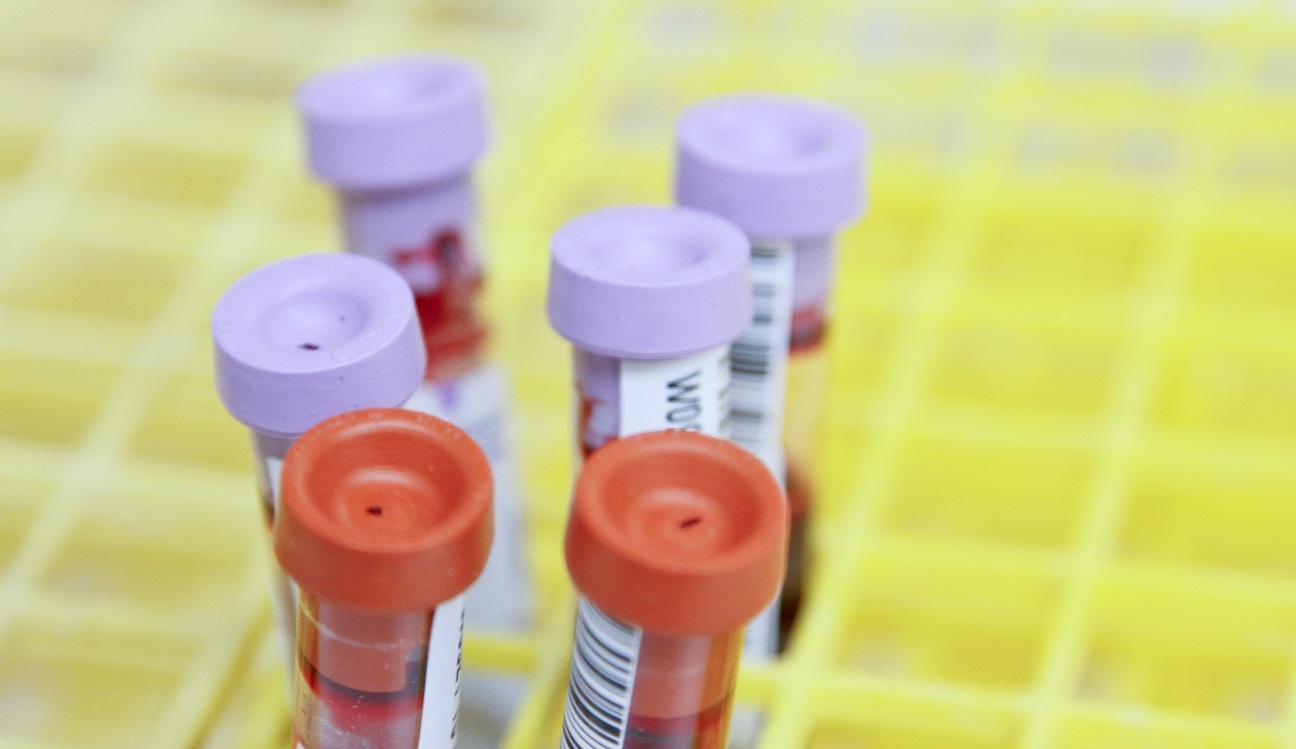From the sore throat caused by flu to a swelling skin cut, inflammation refers to our body fighting process against harmful stimuli. Under some circumstances, the human body’s defensive mechanism can rebalance the immune system. However, some abnormal conditions such as the hyperinflammatory response and deficient inflammatory response could be fatal.
According to research by the Lancet in 2017, 11 million people died from sepsis-related diseases, accounting for 19.7% of death worldwide. Severe inflammation caused by infection can lead to millions of deaths every year, especially in newborns (0-28 days). Such infections are terrifying due to their fast deterioration.
Early examination is crucial for timely diagnosis, treatment, and prognosis. Inflammatory markers blood tests are essential for doctors to make proper judgments. In this article, we will discuss relevant inflammatory markers and their roles in reflecting the severity of COVID-19 infection.
Inflammatory markers blood test
WBC is arguably the most widely used blood test, and its normal range can vary person to person. The reference range is wide, and often a test result that is 30% higher than the ceiling can be considered evidence for diagnosis. Furthermore, when severe infection suppresses the bone marrow function, WBC may show a decrease. Therefore, WBC results alone are not sufficient for an accurate diagnosis.
Other than WBC, the most commonly used laboratory tests include:
● CRP
● PCT
● SAA
● IL-6
C-reactive protein: Among the most relevant inflammatory markers, we find the
CRP. The C-reactive protein is produced by the liver in response to various inflammatory cytokines. When compared to PCT and IL-6, CRP is relatively slow in reaction. In the acute phase of bacterial infections, CRP levels are moderately or greatly increased, whereas in viral infections, they encounter a slight growth.
C-reactive proteins appear related to innate immune response and can recognize foreign antigens and also alter the cells of the body. Thus, in case of severe systemic infection or other inflammatory issues, it would be possible to detect an increase in C-reactive proteins.
Serum amyloid A: As an acute-phase protein similar to CRP, SAA is more sensitive in diagnosing viral infection than its counterpart. Besides, SAA has shown a dramatic increase in inflammation and a rapid decrease when the treatment works. Therefore, if the SAA is relatively low and close to the normal range while the CRP is still at a high level, it can indicate that a patient is in their recovery phase.
Procalcitonin: PCT is quite a relevant marker for confirming the severity of systemic infection. A systemic review confirms its unique role in certain conditions. The level of PCT is diversified in non-infectious and infectious conditions. This discrepancy is accentuated especially when diagnosing sepsis (a cause of neonatal death). PCT is faster than CRP and SAA in increasing infection and decreasing treatment. For this reason, PCT can be satisfactory in monitoring antibiotic usage.
Ultimately, when liver function is affected, and so is the secretion of CRP and SAA (mainly by the liver), PCT becomes instrumental in the diagnosis of severe inflammation.
PCT is highly sensitive to severe systemic bacterial infection when CRP and cytokines are suppressed (especially septicopyemia and
Gram-Negative Bacterial Infections). However, PCT will show a lower rise at local infection.
Interleukin 6: IL-6 triggers CRP and PCT to secrete and plays a key role in a cytokine storm. As an essential component in our immune system, IL-6 escalate earlier than other biomarkers during the inflammation. Nonetheless, IL-6 can gradually decrease following two hours after the onset of inflammation. As a result, the IL-6 level may not be a suitable marker for clinical diagnosis on patients showing symptoms hours after the inflammation.
On the other hand, continuous increase in IL-6 level indicates poor prognosis, making this marker an effective predictor of extremely severe cases (e.g., SIRS and sepsis)
Recent research about people infected with COVID-19 has reported IL-6 markers importance. Rising IL-6 above the normal range is more likely to appear in severe cases (76.19%) than mild cases (30.39%), making IL-6 an optimal predictor of COVID-19 infection severity.
COVID-19: Common combinations of multiple markers
In the early days of the COVID-19 epidemic, researchers guessed that the high mortality rate with this disease in hospitalized patients is related to hyperinflammation of a cytokine storm. There are numerous studies confirming that the severity of the disease and risk of mortality can be predicted with the help of inflammatory markers.
Meta-analysis of studies shows that monitoring the inflammatory response and thus the severity of COVID-19 should be an essential part of managing patients. Moreover, in many cases, the disease outcome may be difficult to predict solely based on signs and symptoms. An advanced examination can be of vital help as these evidences (e.g., biomarkers in the blood), appear earlier than visible symptoms.
Studies confirm that CRP, SAA, IL-6 are reliable indicators of the severity of COVID-19. Those patients with elevated markers have poorer outcomes, and lower levels of some of these markers like IL-6 are associated with higher survivability.
Since not all inflammatory markers may have similar predictability in different disease conditions, it is more informative to assess the levels of multiple markers. Researches have proved that combined tests of multiple markers are of greater help for diagnosis and prognosis.
A common combination of biomarkers is CRP and SAA for respiratory infection. Another possibility is PCT and IL-6 combined together for neonatal septicopyemia. More combinations have been gradually found.
Finecare™ FIA Meter II Plus SE
Finecare™ FIA Meter II Plus SE is an analyzer that can help monitor numerous parameters, including immune response, inflammatory markers. It not only helps assess the severity of any disease condition but may also help assess functional parameters of various organs. Thus, it may help determine diabetes, renal injury, cardiac health, thyroid function, fertility, coagulation, and even nutritional status. Ultimately, the Finecare healthcare solution is a quick and reliable way of assessing the severity of various disease conditions.
For further information, click
here.
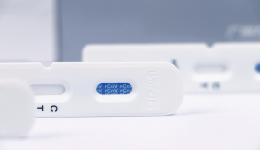 The first developed technology platform with various application scenarios, including infectious disease, fertility, DOA, etc.
The first developed technology platform with various application scenarios, including infectious disease, fertility, DOA, etc.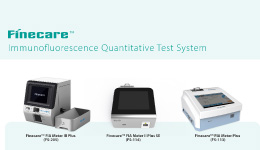 50+ kinds of reagents and five high-performance devices, focusing on detecting cardiovascular disease, inflammation, kidney injury, sex hormones, thyroid function, diabetes, tumor, and others.
50+ kinds of reagents and five high-performance devices, focusing on detecting cardiovascular disease, inflammation, kidney injury, sex hormones, thyroid function, diabetes, tumor, and others.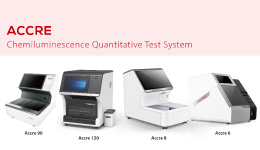 Single-dose Chemiluminescense Immunoassay Platform
Single-dose Chemiluminescense Immunoassay Platform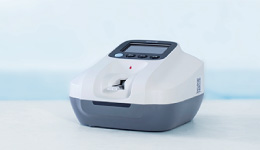 Wondfo optical blood coagulation analyzer is the first one in the world that can test PT, APTT, TT, FIB, and ACT simultaneously.
Wondfo optical blood coagulation analyzer is the first one in the world that can test PT, APTT, TT, FIB, and ACT simultaneously.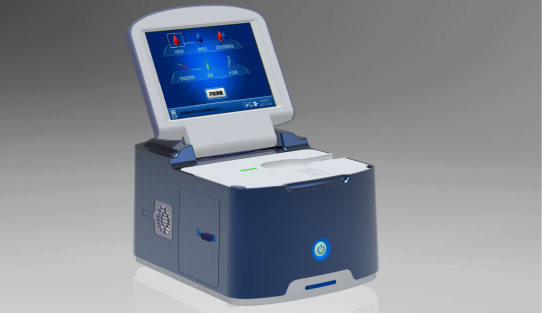 Our Blood Gas Analyzer BGA-102 can produce the result in 30s. Its advantages of portability, easy operation, durability, and high performance make it ideal for clinics, laboratories, and hospitals.
Our Blood Gas Analyzer BGA-102 can produce the result in 30s. Its advantages of portability, easy operation, durability, and high performance make it ideal for clinics, laboratories, and hospitals.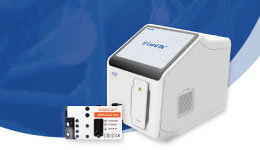 Ready-to-use lyophilized RT-PCR Reagent;
Ready-to-use lyophilized RT-PCR Reagent; Wondfo PA-3600 IHC Staining System
Wondfo PA-3600 IHC Staining System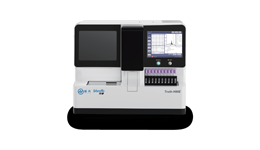 The Wondfo Truth-H80E HPLC Hemoglobin Analyzer is a high-performance diagnostic device designed for rapid and precise measurement of glycosylated hemoglobin (HbA1c)—the gold standard for diabetes diagnosis.It support the standard mode and variant mode and provide the result within 60-90seconds.
The Wondfo Truth-H80E HPLC Hemoglobin Analyzer is a high-performance diagnostic device designed for rapid and precise measurement of glycosylated hemoglobin (HbA1c)—the gold standard for diabetes diagnosis.It support the standard mode and variant mode and provide the result within 60-90seconds. This year, the summit will place a special focus on collaboration across different fields to explore the application of POCT and optimize clinical pathways. In the meantime, drive innovation by adoption of new technologies and biomarkers.
This year, the summit will place a special focus on collaboration across different fields to explore the application of POCT and optimize clinical pathways. In the meantime, drive innovation by adoption of new technologies and biomarkers.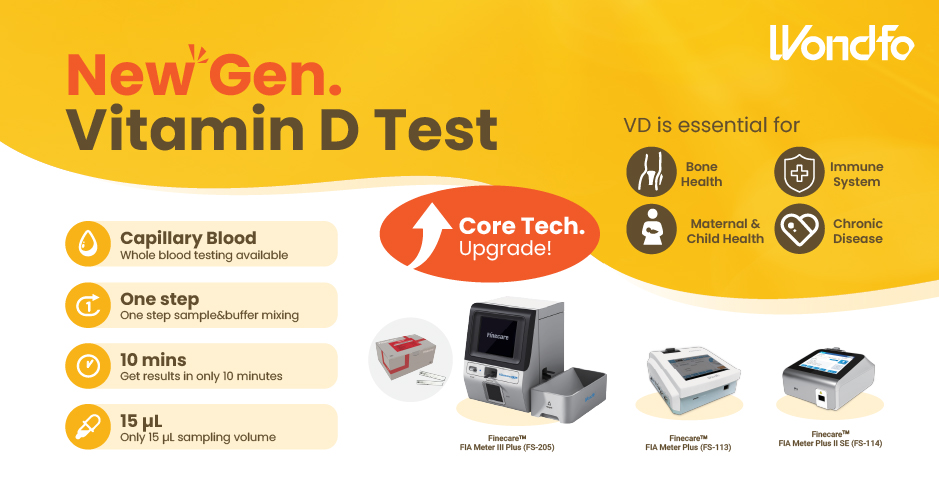 Finecare™ Vitamin D, from complexity to simplicity
Finecare™ Vitamin D, from complexity to simplicity Building A World Free from Antibitoic Overuse
Building A World Free from Antibitoic Overuse Advanced rapid diagnostic test with WHO prequalification for infectious disease
Advanced rapid diagnostic test with WHO prequalification for infectious disease The Future Intelligent Medical Assistant to Healthcare
The Future Intelligent Medical Assistant to Healthcare Fight against the pandemic through continuous innovation
Fight against the pandemic through continuous innovation



















